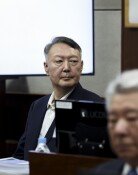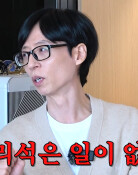[Editorial] Competitiveness Comes Before Cooperation
[Editorial] Competitiveness Comes Before Cooperation
Posted January. 13, 2009 07:59,
President Lee Myung-bak after a bilateral summit with Japan yesterday stressed how close relations between the two countries. Japanese Prime Minister Taro Aso emphasized the importance of developing a mature partnership. The two leaders agreed on supporting advances by Japanese companies into exclusive industrial complexes for parts and materials in Korea, and on continuing working-level negotiations for resuming bilateral talks on a free trade agreement. They put aside sensitive historical issues and showed a pragmatic attitude in the summit.
It is too early to call the summit a success, however, given previous bilateral summits that were full of rosy but unfulfilled promises.
A case in point is Koreas chronic trade deficit with Japan, the most outstanding bilateral issue. Though the leaders of both nations have pledged to address the problem whenever they hold talks, the deficit has worsened every year and hit a record high of 33 billion dollars last year. Little progress has come though President Lee placed heavy emphasis on it at his summit with Asos predecessor Yasuo Fukuda in April last year.
The trade imbalance between the two nations arises from the Korean economys heavy dependence on Japanese parts and materials. Almost all previous Korean administrations sought to tackle the imbalance, but the task proved challenging. Korea is heavily dependent on imported Japanese goods and technology while no corresponding exports go to Japan. In other words, Korea has no one else but itself to blame.
It all boils down to enhancing the competitiveness of Korean products and raising the standard of the domestic parts and materials industries on a par with Japans. Fortunately the strong yen has provided the Korean government and businesses a great opportunity to work together to alleviate the imbalance under favorable circumstances.
Aso was accompanied by 19 Japanese business leaders in his visit, which shows Japans strong commitment to overcome the economic crisis. The discussions with them, though short, should encourage Seoul to be more serious about tackling its own economic troubles. The two leaders agreed to develop a mature and future-oriented partnership. Without building a strong economy on Koreas part, however, it is foolish to expect a truly equal partnership. Engaging in shuttle diplomacy with Japan should not be Koreas ultimate goal. Rather, the aim should be to raise Korean competitiveness to Japans level.



![‘딸’ 같아서…상가 담보로 내준 치매부부, 6억 털렸다[히어로콘텐츠/헌트①-下]](https://dimg.donga.com/c/138/175/90/1/wps/NEWS/IMAGE/2025/12/14/132963612.1.jpg)



